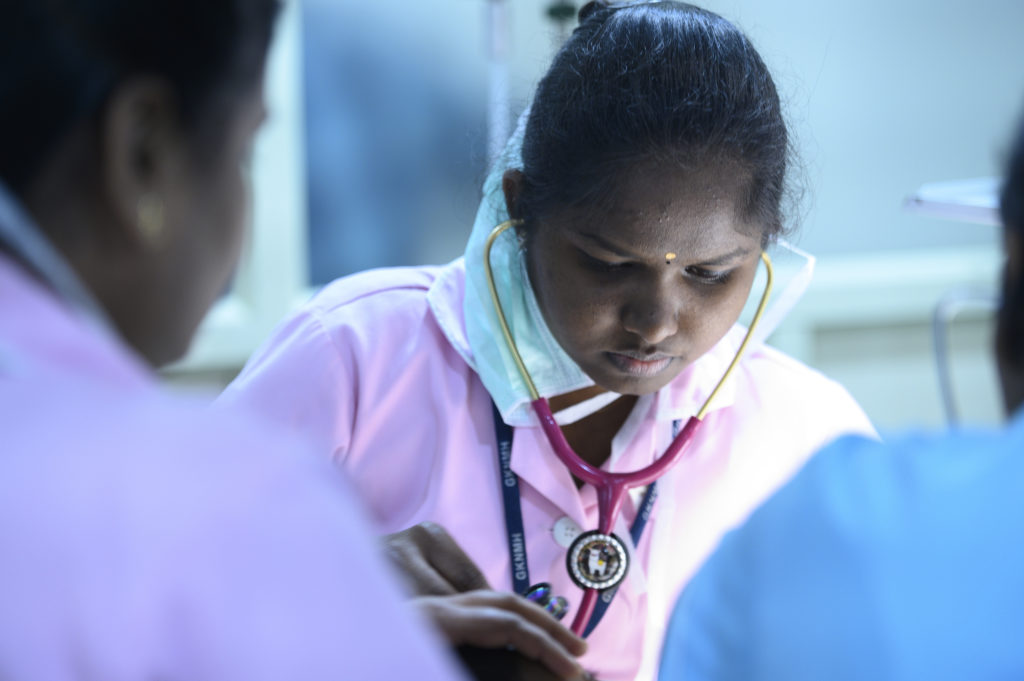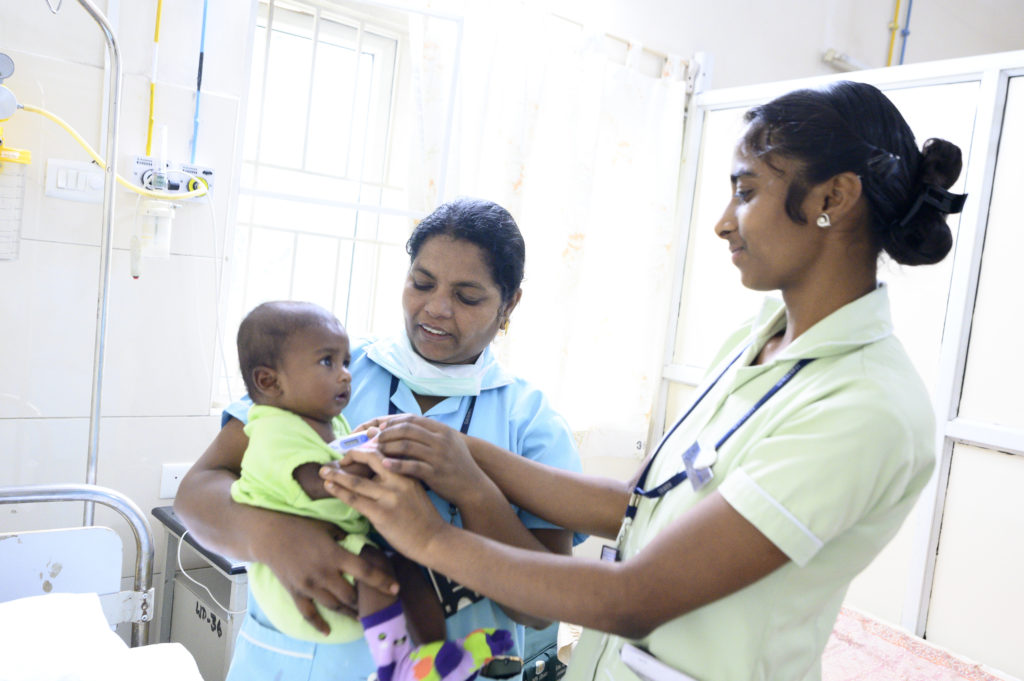by Bistra Zheleva, Vice President of Global Strategy and Advocacy at Children’s HeartLink
We hear constantly how important nurses are. On this International Nurses Day, the bicentenary of the birth of Florence Nightingale, and during the 2020 Year of the Nurse and Midwife, it’s important for us to not only talk about the importance of nursing but also to do something to prove we mean it.

Photos: Scott Streble
Children’s HeartLink works in a small but very nursing-dependent field. In our 50-year history, we have always partnered with nurses as much as, possibly even more than, we partner with doctors. From the first nurses who chose to work with pioneer surgeons treating children with heart disease in the late 1960s, to today’s exceptional pediatric cardiac nursing experts whom we have the fortune to work with and are now on the COVID-19 frontlines.
Today, almost 80% of primary health care is delivered by nurses, and nurses and midwives make up more than half the global health care workforce. We know that well-trained and empowered pediatric cardiac nurses significantly contribute to better patient outcomes. Nurses must be seen as integral members of the pediatric cardiac team. This message is more important now than ever, and this moment gives us a chance to elevate the conversation and create the change for a future where nurses can confidently step forward on the front lines of every disease, demonstrating what an empowered workforce can do.
Nurses comprise the largest segment of the health care workforce in most countries, and in the case of pediatric cardiac care, they are the biggest constituent of Children’s HeartLink’s capacity building activities. Congenital heart disease is the most common birth defect, affecting 1.35 million newborns globally and causing 261,247 deaths every year. Care for these children requires a multidisciplinary team that should include cardiac surgeons, cardiologists, anesthesiologists, intensive care physicians, neonatologists, nurses, respiratory therapists and perfusionists. Key members of this team should be the intensive care nurses. They are the primary health care providers post-surgery, a time when major treatment-compromising complications can develop. They must be equally engaged in the planning and delivery of care, along with the doctors. Nurses interact closely with patients and their families and are the closest to the patients during the most critical moments, day and night. This breadth of practice gives them an intimate understanding of patients’ needs and of the factors in the health system environment that affect the health outcomes of patients.

Pediatric cardiac intensive care unit (PCICU) nurses should have specialized training and experience in the postoperative care for children undergoing heart surgery. We have learned from studies that higher levels of nursing education and experience are significantly associated with improved patient outcomes, including fewer complications after pediatric cardiac operations and reduced deaths. Education and training for caregivers at all levels is a valuable investment because it empowers them—and this is particularly true for nurses. Nurse empowerment directly translates into improvements in outcomes through improved vigil, better infection control and greater motivation through a sense of ownership of the results, in patient outcomes.
Yet what we see today at many pediatric cardiac centers is a significant intensive care nursing staffing shortage, a gap between academic training and the clinical practice requirements, and a lack of recognition at the administrative and clinical levels of the critical role of nurses as equal team members caring for children. Most centers find it difficult to recruit and retain adequate numbers of nursing staff necessary for the level of quality and complexity of pediatric cardiac surgery. In addition, there are limited professional development opportunities for access to continuing medical education programs for nursing staff, with almost a complete lack of funds for travel to conferences. Many nurses leave their positions because of negative experiences with heavy or unrealistic workloads and because they feel unheard and undervalued. All of this contributes to a lack of empowerment among the nursing staff and leads to poorer patient outcomes.
We are living in a moment today when COVID-19 has added a new layer to these already big challenges. Many health workers have died during this pandemic and many more have been sickened–and the majority of them have been nurses. This crisis should be seen as an opportunity to shine a light on how important nurses are for society, and our response should be to build better and more resilient systems beyond this pandemic, by continuing to make investments in nurses who will always be on the frontlines of health care. We support the Nursing NOW global campaign that aims to improve the health of the population by raising the profile and status of nursing globally. The campaign advocates for a more prominent nursing voice in health policymaking; greater investment in the nursing workforce; promoting more nurses into leadership positions; conducting research on nursing impact; and sharing of best practices. Just like Florence Nightingale, nurses can be not only care providers but also educators, quality improvement analysts, health care administrators, policy advisors and researchers.
This year, and in the middle of the COVID-19 pandemic, we have to find time to celebrate the extraordinary work of nurses by empowering them through building their skills, through involving them in leadership positions, through ensuring their roles in policy setting, and by listening to and promoting their important stories. This is what Children’s HeartLink has done, continues to do and will do in the future. In our capacity building programs, we aim to ensure that nurses are appropriately skilled, competent and motivated to provide the highest quality care to their young patients. We aim to achieve not just an increase in the number of nurses but also to improve the quality and recognition among other disciplines involved in the care process. This aligns with the vision and goals of the World Health Organization’s Global strategic directions for strengthening nursing and midwifery 2016–2020.
